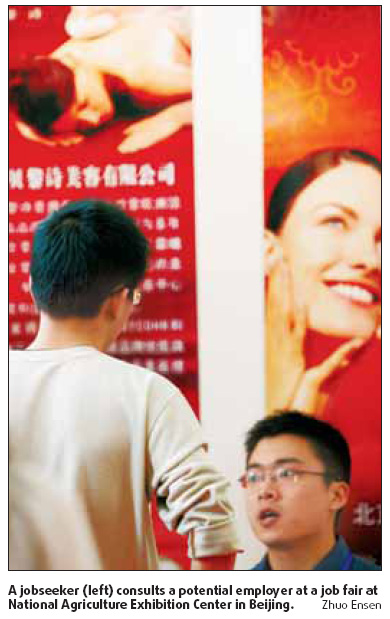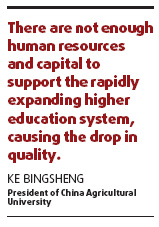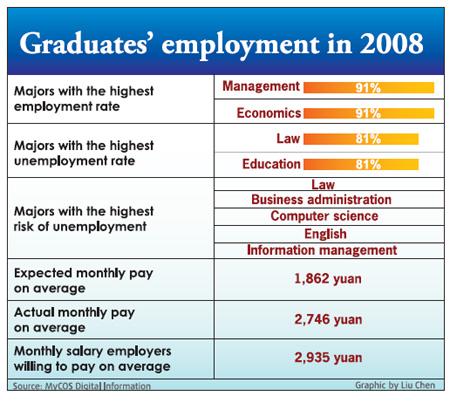
|
Metro> Education
 |
|
Students suffer for 'low quality' education
By Wang Wei (China Daily)
Updated: 2009-11-11 11:48
 Ma Jing, a 22-year-old graduate from China Agricultural University, has been frustrated recently after a fruitless two-month job hunt. "I have been to many job fairs and sent tons of resumes online. But employers only hire people who have working experiences," said Ma, who majors in financial management. Ma said most of her classmates haven't landed a job and she would take postgraduate entrance exam if she still could not get a job. About 12 percent of 9,444 graduates in Beijing cannot find a job, according to a study conducted in October by MyCOS Digital Information, a human resources consultancy company. The study indicated the employment rate for university graduates fell 5 percent last year compared to 2007. Ke Bingsheng, president of China Agricultural University in Beijing, blamed the problem on a shortfall in government funding resulting in low-quality higher education. "Although the government's input into the education sector has grown substantially over the past decade, most of the money went to compulsory education," Ke said. "The money allocated to higher education decreased proportionally from 80 to 40 percent in the last 10 years." According to Ke, the amount spent on every university student has fallen by 20 percent since 1999, while the amount for primary and middle school students has increased by more than 200 percent and 60 percent respectively.
 "There are not enough human resources and capital to support the rapidly expanding higher education system, causing the drop in quality," Ke said. "It is one of the reasons prestigious companies are not interested in new graduates." In addition, university expansion has hampered students' employment prospects. In 2001, there were 1.15 million new graduates, but by 2005 that figure had jumped to 3.8 million. The shortfall between employment supply and demand will be even worse this year due to the bleak economic outlook and the fact jobs are disappearing in export-reliant sectors, according to a report by the Information Times. The survey by MyCOS also discovered that the average income of new graduates fell 11 percent to less than 2,800 yuan ($410) a month last year compared with 3,000 yuan in 2007. Students majoring in literature went on to earn the highest salary, while students of science received the lowest. The expected salary of students is also lower than the actual average income, said the report. Graduates with a bachelor's degree expect to earn just 1,800 yuan a month, although the actual average salary is 2,700 yuan, according to the report.
 |